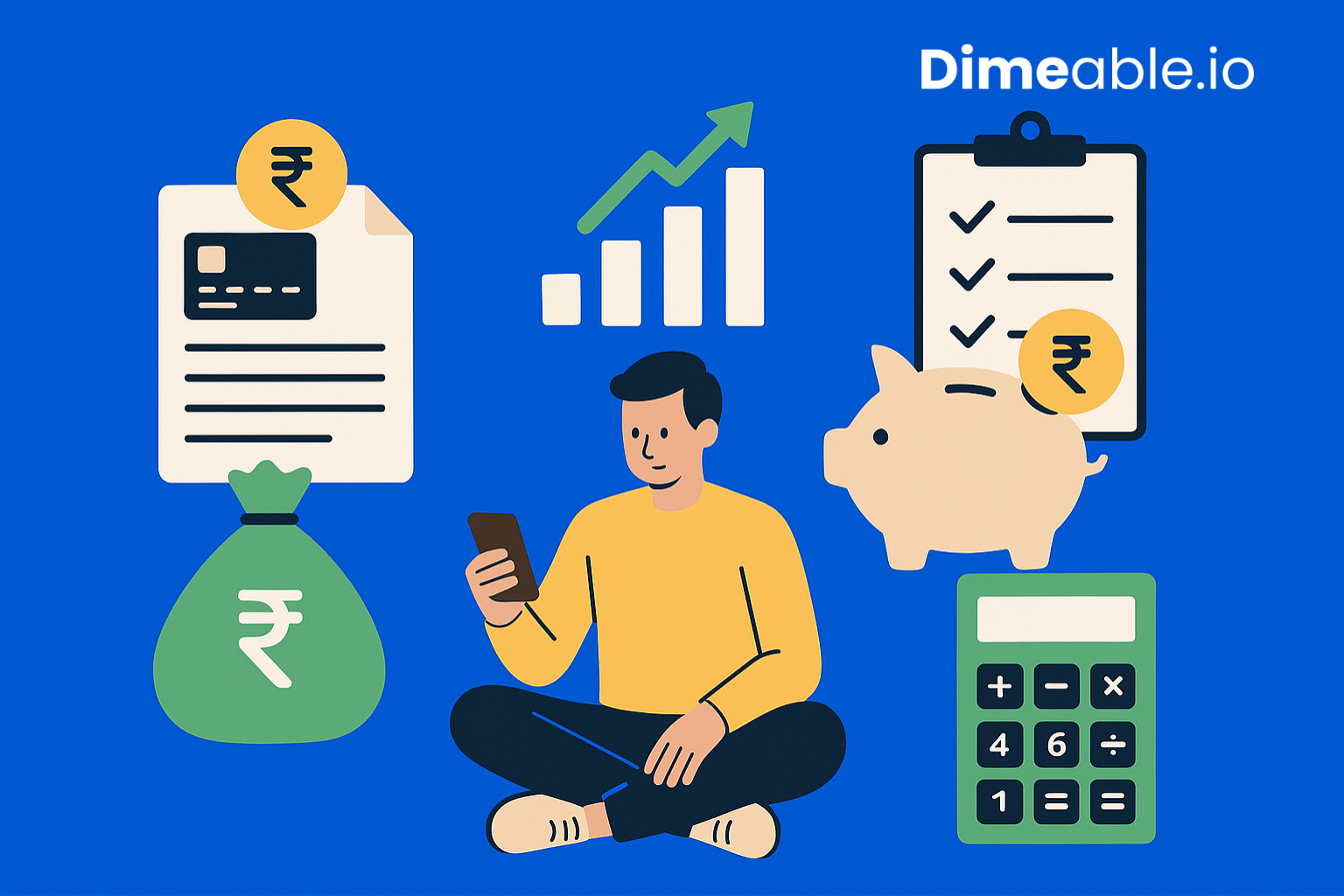Let’s paint a picture. Imagine your credit card is a leaky bucket. You keep scooping out just enough water (read: making the minimum payment) to stop it from overflowing, but the leak never stops. Meanwhile, the puddle around your feet—interest, stress, poor credit score—keeps growing.
That’s the trap. And millions fall into it every year.
Paying only the minimum due might feel like you’re being financially responsible. You’re avoiding late fees, after all. But here’s the twist—it’s a trick of the light. This “small win” often leads to a long-term loss, especially if you’re aiming for a great credit score or financial freedom.
Let’s break down why.
1. The Minimum Payment Mirage: You’re Not Winning, Just Delaying
Every month, your credit card bill comes with a tempting number: “Minimum Due ₹2,000.” Sounds manageable, right? You pay it, feel proud, and move on. But this isn’t a reward—it’s a warning in disguise.
That minimum—usually 2–5% of your balance—is only there to keep your account current. It does not reflect healthy financial behavior. It keeps you from defaulting, sure, but it doesn’t impress credit bureaus. In fact, it signals you might be struggling.
Imagine going to the gym once a month and expecting six-pack abs. Paying just the minimum is financial cardio without the sweat. You look like you’re trying—but the results say otherwise.
2. Credit Utilization: The Sneaky Score Killer
Credit utilization sounds like a fancy finance term, but here’s the lowdown: it’s how much of your credit limit you’re using.
Let’s say you’ve got a ₹1,00,000 credit limit. You spend ₹70,000 and pay only the ₹2,800 minimum. That leftover ₹67,200 is reported to credit bureaus. They see you using 70% of your limit—and they don’t like that.
Ideally, you want to stay under 30% utilization. Lower is even better. When you consistently pay only the minimum, your balance creeps along like a lazy marathoner, keeping your utilization high and your credit score in the dumps.
3. The Silent Interest Monster
Credit card interest is the financial version of quicksand. The more you delay, the deeper you sink.
Most cards charge 30–42% annual interest in India. That’s massive. When you only pay the minimum, the unpaid balance accrues interest daily. Let that sink in—daily. You may have only swiped for a pair of shoes, but by next year, you’ve paid for the whole store.
Example:
Spend ₹50,000. Pay the minimum ₹2,000/month. At 36% interest, it’ll take over 4 years to repay—and cost you ₹90,000+ in total. That’s not shopping. That’s sabotage.
4. Lenders are Watching… Always
Here’s a secret: banks stalk your payment patterns.
They see who pays on time, in full, and who just scrapes by. When you pay only the minimum, lenders view you as “risky.” This means you’re less likely to get approved for premium credit cards, car loans, home loans, or attractive interest rates.
Want that business class upgrade or a swanky cashback card? Start by showing lenders you’re not just surviving—you’re managing money smartly.
5. You Deserve Better Than Financial Treadmills
We get it. Sometimes paying the full amount is hard. Life happens. Unexpected expenses crop up. But making minimum payments a habit is the real issue.
The goal isn’t perfection—it’s progress. Even if you can’t pay in full every time, try to pay more than the minimum. That extra ₹1,000? It shaves months off your debt. And each month you do better, your credit score thanks you.
What Should You Do Instead?
-
Aim to pay your balance in full every month.
-
If you can’t, pay as much as you can over the minimum.
-
Automate payments to never miss a due date.
-
Keep your credit utilization below 30%—below 10% is golden.
-
Consider a balance transfer to a lower-interest card if you’re drowning.
FAQs
Q: Will paying the minimum amount hurt my credit score?
Yes, over time. While it prevents late fees, it increases your credit utilization and can hurt your score if done regularly.
Q: Is it okay to pay the minimum just once or twice?
Occasionally? Sure. Life happens. But don’t make it a habit—it’s a slippery slope.
Q: Does paying the full amount improve my credit score?
Absolutely. It shows responsible credit behavior, reduces utilization, and keeps interest at zero.
Q: Can I use multiple cards to keep utilization low?
Smart move. Using multiple cards responsibly helps spread out your usage, keeping each card’s utilization low.
Q: What if I can’t afford to pay more than the minimum?
Prioritize. Cut back on unnecessary spends, consider a part-payment plan, or consult a financial advisor. Avoid buying things on credit you can’t repay within 30 days.
Final Thoughts: Minimum Isn’t Good Enough
Paying just the minimum is like treading water. You may not drown immediately, but you’re going nowhere—and exhausting yourself in the process.
Want to boost your credit score, qualify for better loans, and sleep peacefully at night? Start by kicking the minimum payment habit.
Because when it comes to your financial future, you deserve maximum rewards—not minimum effort.


